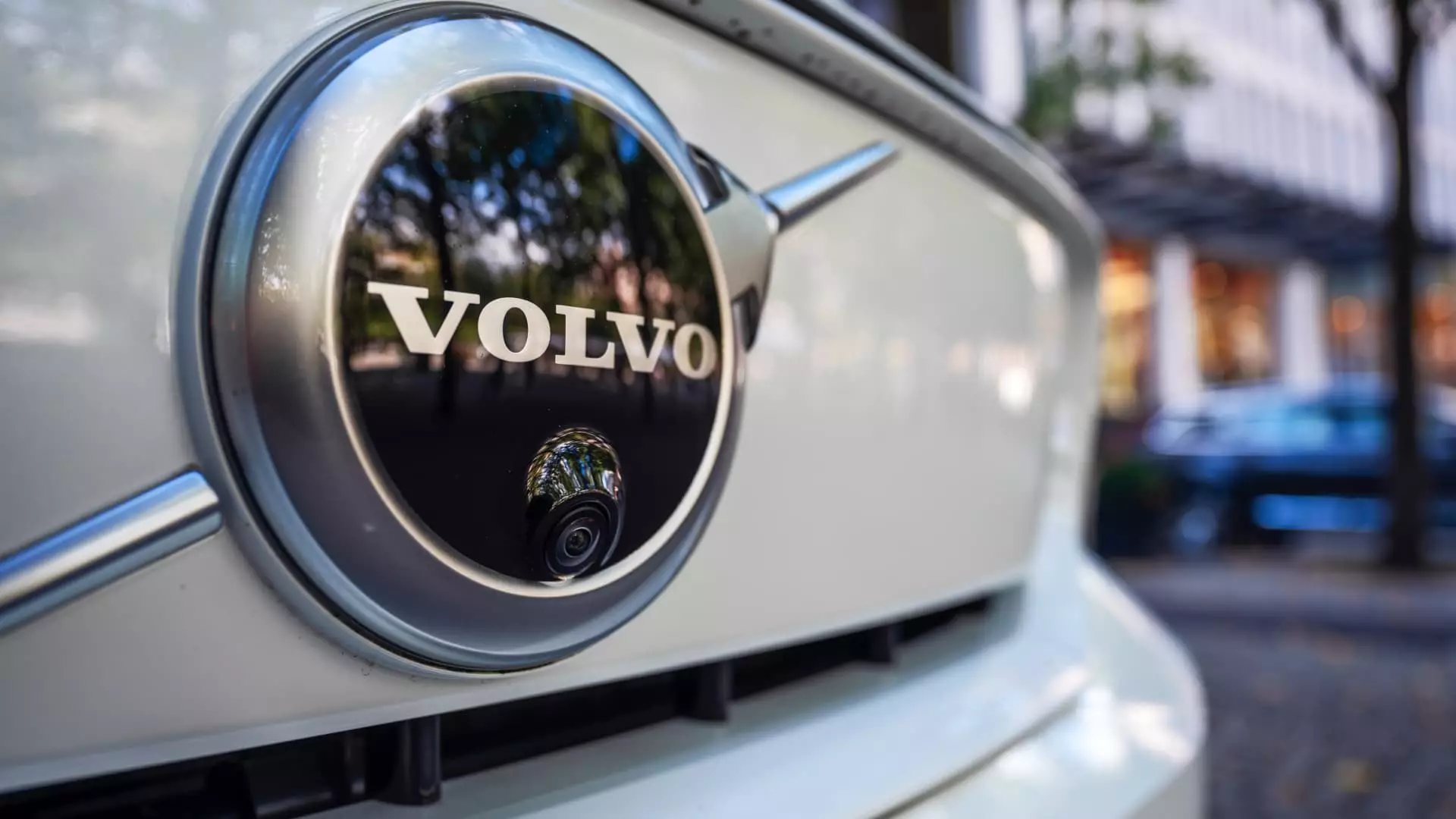In a shocking move that has sent ripples across the automotive industry, Volvo Cars announced it would eliminate approximately 3,000 jobs as part of a broader cost-cutting initiative. This decision is emblematic of the harsh realities that companies face amid fluctuating market conditions and mounting financial pressures. As part of a significant 18 billion Swedish kronor ($1.89 billion) action plan, this restructuring is not merely a numerical adjustment on a balance sheet; it is a reflection of a deep-seated challenge that has gripped the industry as a whole.
Under the ownership of China’s Geely Holding, Volvo is seemingly caught in a whirlwind of economic turbulence. The automotive sector has been long plagued by unpredictability, and as Håkan Samuelsson, the president and CEO of Volvo Cars, acknowledges, these decisions, while tough, are vital for the company’s future. Stripping down operations by 15% of its office-based workforce isn’t just a cost-saving measure; it signals a shift in corporate philosophy—one that prioritizes resilience over tradition.
The Emotional Toll of Downsizing
Job cuts are not just statistics; they represent real people with real lives. Approximately 1,200 of the affected positions will be located in Sweden, with others dispersed across global markets. The decision to lay off employees lays bare an uncomfortable truth in today’s corporate environment: loyalty to workers often takes a backseat to the cold calculations of profitability. So many employees wade through their daily responsibilities, fueled by the hope that their contributions will be rewarded with security. In this scenario, the felt betrayal is palpable.
Volvo’s decision is particularly discouraging given its previous commitments to growth and technological advancement. The company’s ambition to lead the electric vehicle (EV) market is grounded in innovation, yet when that ethos clashes with bottom-line realities, it can lead to despondency among its workforce. The reliance on consultants to fill roles may have been a temporary fix, but now it raises questions about the very fabric of workforce integrity in the automotive industry.
The Broader Impact of Tariff Turmoil
The automotive landscape is intricately tied to international policies, and the current tariff situation is a significant factor weighing heavily on Volvo’s fortunes. The uncertainty surrounding trade tariffs, particularly threats of 50% tariffs imposed by the U.S. on European imports, threatens to destabilize not only Volvo but the entire industry. With increased costs and potential supply chain disruptions, companies like Volvo must recalibrate their strategies to navigate a treacherous economic environment.
The globalized nature of modern manufacturing means that companies are interconnected like never before; one policy shift can send shockwaves through supply chains, requiring instant adaptability. With the previous administration’s fluctuating tariff threats, the investment climate has become even murkier. While efforts by President Trump to delay tariff implementation may provide temporary relief, the underlying tension remains.
The Dichotomy of Progress versus Stability
In a bid to remain flexible and pragmatic, Volvo has recalibrated its near-term goals for fully transitioning to electric vehicles—a commendable yet complex strategy. Although aiming to be a pioneer in the EV market underscores a commitment to a sustainable future, it also raises the daunting specter of fluctuating consumer demand. Striving for innovative electric solutions should not come at the expense of workforce stability and morale.
Moving forward, the challenge for Volvo, and the automotive industry at large, will be to strike a balance between pursuing aggressive growth strategies in sustainability and ensuring that the human capital—its employees—aren’t sacrificed in the process. The pressure to innovate must not overshadow the necessity for job security, as a loyal and engaged workforce is the true backbone of any successful enterprise.
Ultimately, while Volvo’s cost-cutting measures may address immediate financial concerns, they cast a long shadow of uncertainty over the future of the automotive manufacturing workforce. As companies navigate this transformative phase, it is imperative that they cultivate a culture that promotes both progress and security, ensuring that innovation is built upon a sturdy foundation of human talent and commitment.

